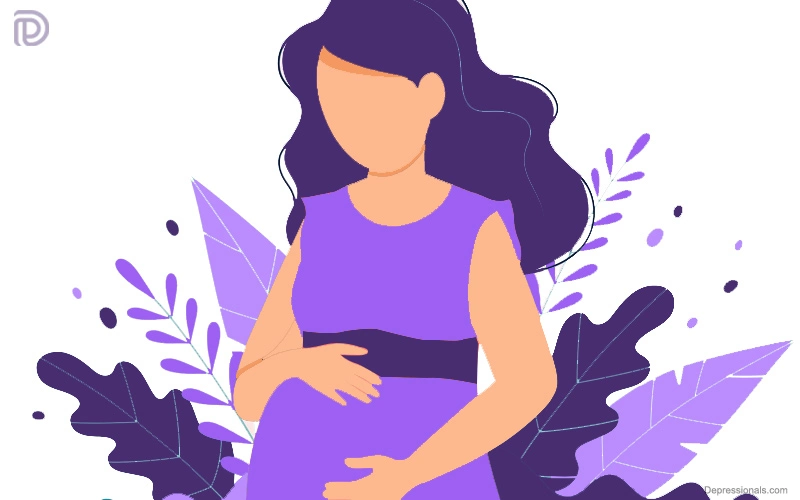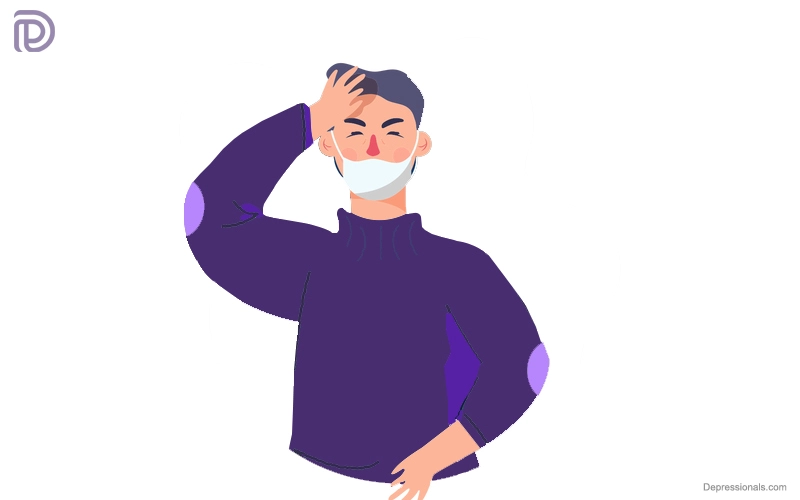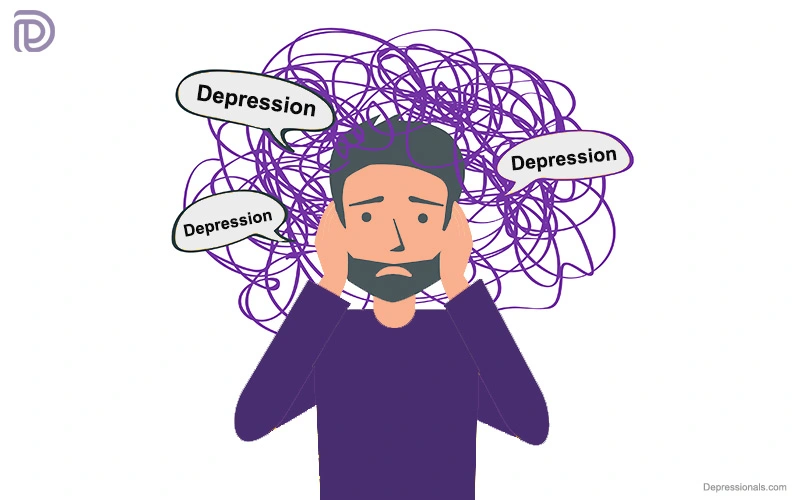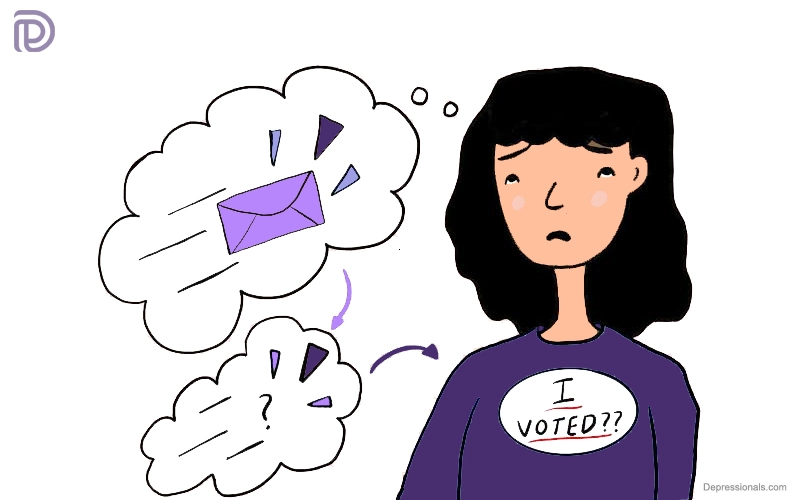If you’re pregnant, chances are you’ve heard about postpartum depression. How many women do you know also suffer from depression during pregnancy? You should know the facts about depression during pregnancy.
Key points about depression during pregnancy
- It’s not your fault that you’re depressed. Treatment is needed to treat this medical condition. Consult your healthcare provider if you believe you have depression.
- Depression can be caused by having had depression in the past, having a family history of depression and experiencing stressful events in your life.
- Depression can be prevented with certain types of counseling. Talk to your doctor if you think you might be suffering from depression.
- Premature birth can result from depression in pregnancy if it is not treated. Tell your provider if you feel depressed.
- You shouldn’t stop taking an antidepressant without first discussing it with your provider if you’re taking one while pregnant.
Related: Situational Depression
Can depression during pregnancy affects you and your baby?
Yes. When you are depressed during pregnancy, you are more likely to:
- Being careless with your health. When you do not receive treatment for depression, you might not eat healthy foods or gain enough weight while pregnant. Prenatal care checkups may be skipped or you may not follow your doctor’s instructions.
- Harmful drugs, alcohol and smoking
- Having Postpartum Depression after pregnancy. When you suffer from PPD, it can be difficult to bond with your child.
- Suicide (killing yourself), plans to commit suicide, or thoughts of hurting your baby. These are extremely rare.
Your baby is more likely to suffer from depression during pregnancy because:
- Having a premature baby. This kind of birth occurs before the 37th week of pregnancy.
- An underweight or undersized pregnancy (also called SGA). It happens when a baby does not weigh as much as it should before birth.
- Being underweight at birth (likewise known as LBW). Usually infants born under 5 pounds 8 ounces weigh this little.
- A baby born to a mother who has depression during pregnancy tends to be more irritable, less attentive, less active and has fewer facial expressions
- Later in life, learning, behavior, and developmental difficulties can lead to mental health problems.
It can be hard to get ready for pregnancy and to take care of your baby if you are depressed during pregnancy. Because of this, depression should be treated as soon as possible. Without treatment, depression may lead to:
- Some of the things you need to keep your baby safe and healthy are hard to find, such as a car seat, crib and medical supplies.
- Breastfeeding may not last long for your baby. When you’re depressed, breastfeeding can be difficult for you and your baby. A baby’s first year of life is best spent on breast milk.
- Medical care may not be provided to your baby. When your baby is sick, you may have a harder time taking care of her if you are depressed. Your baby may not seem to have any health problems that need immediate attention and care. You may find it difficult to get your baby the regular well-baby care he or she needs, such as vaccinations. Infections can be prevented by vaccinations.
When you receive treatment early for depression, you are more likely to feel better and be able to give your baby the care that it needs. Ask your provider about treatment if you think you are depressed.
Also, check: Persistent Depressive Disorder
Are you at risk of depression?
Depression is more likely to occur in some people than others. We call these risk factors. There’s no guarantee you’ll have depression just because you have a risk factor. Your chances may still increase, though.
Speak with your healthcare provider to learn how you can reduce your chances of getting sick.
You are screened (checked) for depression by your health care provider during prenatal care. Screening involves asking questions about your feelings, risk, and mood to your healthcare provider.
Your provider can help you get treatment if the screening indicates that you might have depression or that you’re at risk.
A pregnant woman is at risk of depression for a variety of reasons:
- It is possible that you had a mental health condition in the past, such as major depression. Perhaps you or a family member has been depressed or suffered from mental illness. You may have a family history of this condition. It’s possible to suffer from depression when you’re pregnant, even if you’ve been treated or feel better.
- You have suffered physical or physical abuse. There may be issues between you and your partner, such as domestic violence (also known as IPV).
- You are pregnant unintentionally. Alternatively, you’re a teenager who’s pregnant or single.
- The loss of a loved one, the separation from your partner, or a medical condition affects you. You may also be unemployed, low-income, have little education, or have little support from family and friends.
- You suffer from diabetes. Diabetes can occur as a complication of preexisting conditions (also known as gestational diabetes). Pregnant women have this type of diabetes. It can also be caused by gestational diabetes. Pregnant women may develop this form of diabetes.
- During pregnancy, complications like multiple gestations, birth defects, and loss of pregnancy are possible. Pregnant with multiples means you have more than one baby. Birth defects are a sign of a health condition that occurs at birth. One or more of the body’s parts can be altered. It is possible that birth defects could harm a person’s health, develop their body incorrectly, or hinder their ability to function. An unborn baby dies during pregnancy.
- Tobacco, alcohol, and drugs are harmful to you.
Check another type of Depression: Bipolar Depression
Read: What is Antenatal Depression?
Can depression during pregnancy be prevented?

Several types of counseling (also known as therapy) may reduce the risk of depression during pregnancy for women at greater risk. Counseling involves talking about your concerns and feelings with someone.
You can talk to this person about your feelings and problems and they will help you cope with them.
Women with these risk factors are recommended to seek counseling:
- Depression symptoms and signs
- Having a history of depression or mental illness
- Teenage pregnancy or being a single parent
- Low income and other stressful circumstances
- Having been a victim of IPV
To prevent depression in women at increased risk, the Task Force recommends two types of counseling:
- CBT (also called cognitive behavioral therapy). CBT emphasizes changing the way your think and acts in order to overcome negative thinking. One variation of CBT involves working in conjunction with a therapist who helps you identify negative thoughts and behaviors so that you can begin thinking and acting in a new way.
- IPT (also known as interpersonal therapy). IPT can help you deal with your personal issues, such as your relationships with family and friends, work situations or problems at home, but we can also help you deal with medical conditions and bereavements. The type of IPT you receive may include activities like role-playing with a therapist, answering open-ended questions (not yes-no questions), or paying close attention to your relationships and your decision-making.
You can get treatment using CBT and IPT from your provider if you are at risk for depression. Your provider will be able to help you find the right treatment for you if you are honest about your life, your pregnancy, and your feelings.
Related: What is Perinatal Depression?
How is depression treated during pregnancy?
It is best to seek treatment from a team of healthcare providers for depression during pregnancy. By working together, these providers ensure that your baby and you receive the best possible care. You may be provided with services by:
- Contact your prenatal doctor. During pregnancy, you will receive medical care from this doctor.
- The person with whom you are most familiar. The person who provides you with general medical care is your primary health care provider.
- A mental health professional. Psychiatrists, psychologists, social workers, counselors, and therapists may play this role.
- Providers who will take care of your baby.
Several treatments are available for depression. Combining treatments may be the best option for you in place of just using one approach. The following treatments are available:
- Counseling, such as CBT and IPT.
- Groups that provide support: People who meet online or meet in person to discuss certain topics can participate in these groups. Find a support group with the help of your provider or counselor.
- Medical care: Antidepressants are often used to treat depression. The prescription for these medicines must be written by your provider. Some people take one medicine while others take a combination of medicines. Make sure you get your provider’s approval before starting or stopping any medicine.
- ECT (also known as electroconvulsive therapy): The brain is passed an electric current during this treatment. Pregnant women can use this treatment safely. Severe depression may be treated with ECT.
Related: How to Overcome Depression
How safe are antidepressants during pregnancy?
It is possible for your baby to suffer birth defects or other health issues if you take an antidepressant during pregnancy. Risk is usually low in most cases.
Antidepressants can ease symptoms of depression during pregnancy, but they can return if you stop taking them. If you are taking medications during pregnancy, talk to your caregiver before starting or stopping.
Prenatal care providers and mental health providers can work together to determine whether antidepressants are appropriate for you. Take the time to become familiar with your medication options so that you can make an informed decision for yourself and your baby.
Consult your prenatal and mental health providers if you take an antidepressant and plan to get pregnant.
There is a wide variety of antidepressants available. Each type affects the neurotransmitters differently, but they all affect brain chemicals. There are risks and benefits associated with each during pregnancy. Pregnant women may take the following antidepressants:
- SSRIs (also known as serotonin reuptake inhibitors). Antidepressant medicines prescribed most often are SSRIs. Citalopram (Celexa), sertraline (Zoloft) and fluoxetine (Prozac) are SSRIs that are safe to use during pregnancy.
- Duloxetine (Cymbalta) and venlafaxine (Effexor XR) are serotonin and norepinephrine reuptake inhibitors (SNRIs).
- Nortriptyline (Pamelor) is a tricyclic antidepressant (TCA).
- Bupropion (Wellbutrin)
When paroxetine is taken during the first trimester of pregnancy, it may have an adverse effect on a baby’s heart. Paroxetine should be discontinued immediately if you are pregnant or planning to become pregnant.
The results of some studies suggest taking certain antidepressants during pregnancy may lead to miscarriage, premature birth, low birth weight, birth defects (such as heart defects), or persistent pulmonary hypertension (also known as PPHN).
Centers for Disease Control and Prevention (CDC) studies have suggested that the SSRIs fluoxetine and paroxetine cause birth defects at a 2 to 3 times higher rate in women who take them. Moreover, other SSRIs, such as sertraline, do not cause birth defects.
Some research has indicated that some antidepressants may cause irritability and feeding difficulties in babies. Research has not confirmed whether these studies are true, so we do not know if the medicines do indeed cause these kinds of problems. It is necessary to conduct more research.






I love your blog.. very nice colors & theme. Did you create this website yourself? Plz reply back as I’m looking to create my own blog and would like to know wheere u got this from. thanks
It’s actually a nice and helpful piece of information. I’m glad that you shared this helpful info with us. Please keep us informed like this. Thanks for sharing.
I am typically to running a blog and i actually appreciate your content. The article has actually peaks my interest. I am going to bookmark your website and maintain checking for brand new information.
You actually make it seem so easy with your presentation but I find this topic to be actually something that I think I would never understand. It seems too complicated and very broad for me. I’m looking forward for your next post, I’ll try to get the hang of it!